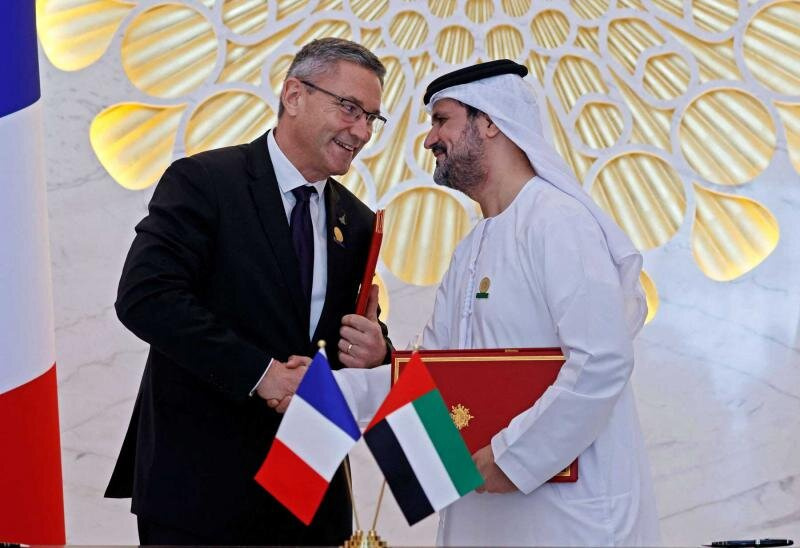Macron Tour Reveals European Double Standards on Iran

Speaking to reporters in Dubai, Macron claimed Friday that the current round of talks had not been successful, and hinted that there would be a delay before the next round took place.
“I think it's probable that this round of negotiations, given the positions, does not succeed,” he said according to Reuters. “It is most likely that these negotiations do not continue in the short term.”
No other European leaders have commented on the talks before Macron, and to this day, no other western leaders have commented on the state of things between Iran and the west as much as Macron has.
The reason for this may well be the fact that the French president set off a tour of Persian Gulf Arab countries on the same day the talks were wrapped up in Vienna. On Friday, while Iranian and European negotiators were holding intensive, heated debates, Macron arrived in the United Arab Emirates with a large politico-economic delegation.
After a plenary session between Iran and the P4+1 group of countries, the French joined their European and American colleagues in putting the blame on Iran for allegedly not showing enough seriousness. They even accused Iran of playing for time, using the Vienna talks to expand its nuclear infrastructure, and backtracking from the previous hard-won compromises achieved during the past six rounds.
On the contrary, Iran refused the western narrative of the talks, underlining the need for a swift conclusion of the talks. Iran’s response to the European and American criticism showed that the western problem with the talks boils down to a number of things: first, Iran entered the talks with a view to negotiate on equal footing and achieve a fair deal. Second, Iran has caught the west by surprise by presenting carefully drafted proposals. Third, Iranian negotiators have made it clear that they understand Europe’s use of double standards in terms of non-nuclear issues.
As for the third reason, Iran seems to have made it clear that Vienna talks should only focus on nuclear issues stipulated in the 2015 nuclear deal officially known as the Joint Comprehensive Plan of Action (JCPOA) while the U.S. and its European allies have said that they want to use the JCPOA as a starting point to address other issues such as Iran’s missiles and influence in the region. In an analysis piece on Saturday, Iran’s state news agency, IRNA, the U.S. certainly seeks to force Iran to negotiate over its ballistic missiles after the JCPA is revived. But this objective, which is equally shared by the Europeans, would be far from being achieved even if the tatted nuclear deal is resuscitated. Because Iran is unlikely to negotiate on issues of paramount importance to its national security particularly now that the French are turning the Persian Gulf region into an arms depot.
During his visit to the UAE, Macron and Abu Dhabi Crown Prince Mohammed bin Zayed oversaw the singing of a record 14-billion-euro contract for 80 Rafale warplanes. The Rafale order, signed on Friday, is the biggest made internationally for the Dassault Aviation aircraft since 2004, according to the Arab Weekly, a publication close to the UAE. The biggest international order ever made for the French jets came as Macron held talks with bin Zayed at the start of a two-day trip which will also take in Qatar and Saudi Arabia.
The resource-rich UAE, one of the French defense industry’s biggest customers, also inked an order for 12 Caracal military transport helicopters for a total bill of more than 17 billion euros, the publication added.
These arms deals have been widely seen as a sign that France is employing double standards on security issues in the region. On the one hand, it calls on Iran to curtail its conventional weapons such as ballistic missiles. On the other hand, it provides the UAE and other Arab sheikhdoms with state-of-the-art weaponry.
Source: Tehran Times

